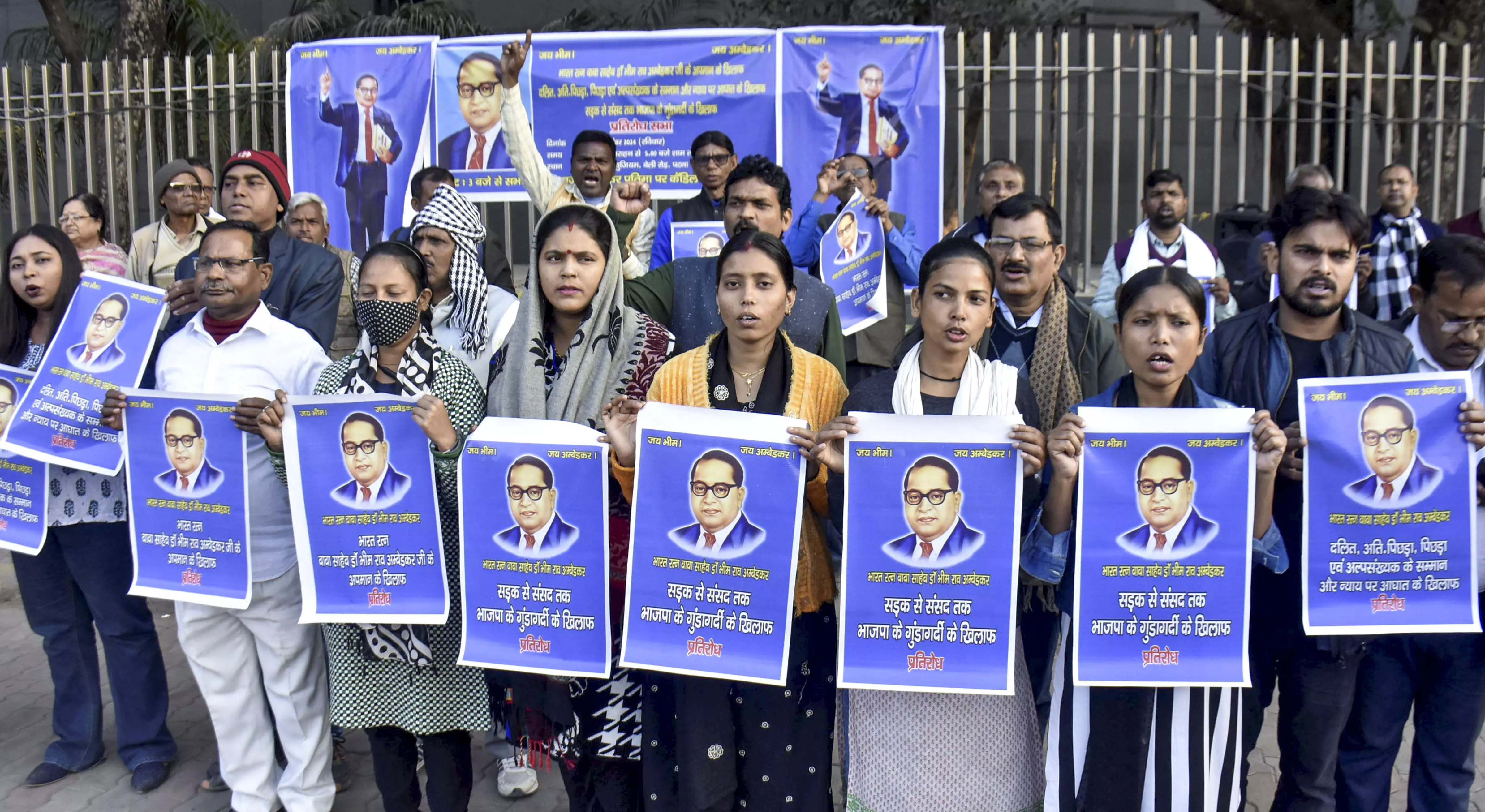
A nationally-run political slugfest that turned into one of the worst in India’s parliamentary history on a day of the winter session could be attributed to Home Minister Amit Shah’s inappropriate comments on the floor. Shouldn’t have come forward sooner with a direct apology for putting out this fire.
The plain and simple fact of the matter is that the off-the-cuff comments have started a war that is more a battle for Dalit votes than a battle of lofty principles. The opposition, which had the opportunity to advance its claim of being the champion of Dalits, has opened a fight on many fronts after the Home Minister’s negligence.
Ambedkar is no less than God to his followers who constitute about 17 per cent of India’s 968 million voters and thus even the mention of ‘God’ in the debate on the Constitution, of which he was the chief architect, became the tinder of that set. A case of fire whose consequences are difficult to gauge now.
In fact, Ambedkar’s political and social influence on Indian society furthered the social justice movement he proposed to empower the downtrodden and the backward, who were at the bottom of India’s reprehensible caste system, and faced the worst discrimination. Only slavery in the West could match the dehumanizing effects of the caste system on society.
And yet the man who opposed MK Gandhi and Jawaharlal Nehru on matters of principle was not so much honored during his lifetime as a fighter for the disgraced ancient caste system. Neither the Nehru-led Congress, which could not fully support Ambedkar’s fight for the highest principles and ideals – and so he resigned as Law Minister, nor the BJP, which claims his legacy in modern times, are Ambedkar’s real successors. Fight for social justice.
The votes of people who make up about a fifth of the electorate but vote differently in different parts of India are important. It is now the crux of the issue being fought outside of Parliament, whose partisan mode of functioning may play less of a role in the existing polarized environment than just another contentious issue.
It is ironic that the two major national parties, the BJP and the Congress, which cannot claim full reverence for the principles Ambedkar promised, are confronting each other about Ambedkar and the Dalits he championed throughout his life. While dealing with Ambedkar’s history, the entire narrative of the Constitution debate seemed to show each other in a poor light.
The Congress wants to present its record of inclusiveness to embrace Dalits who voted for them in large numbers in some states compared to the 2019 elections. But in the Modi era, the BJP has been projecting itself as one with pro-poor policies, despite leaning towards the OBCs, who make up about 52 percent of the population, despite its support for Hindutva and its own caste equation. Ambedkar supporter.
It is a pity that the debate was not about the constitutional path of social justice but only about the historical figures associated with the writing of the document. At a time of apparent political division, there is no point in bringing up the past if not only Dalits and a quarter of the population, the Dalits and Adivasis, are not allowed to think about what can be done. 143 crore Indians to do much good.